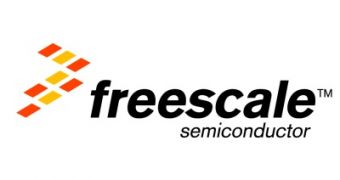Freescale, one of the world's leading manufacturers of semiconductors, has just announced that it has collaborated with a series of companies, to enable 3G connectivity and additional operating system options for netbooks designed to take advantage of the company's new i.MX515 processor. The expanded ecosystem is designed to enable OEMs to deliver their devices to market faster.
“Demand from third parties to partner with Freescale in the growing netbook market has been tremendous,” said Glen Burchers, marketing director for Freescale’s Consumer Segment. “Freescale is taking dead aim at the netbook space by assembling an outstanding portfolio of technologies and partners. As a result, we expect that a wide range of netbook models based on Freescale technology will be available for consumers in the second half of this year.”
The chip maker has debuted on the netbook market earlier this year, in January, with the introduction of its i.MX515 processor and a comprehensive netbook reference design. The company's product is meant to provide the consumer market with computer systems that provide gigahertz performance, impressive graphics and up to eight hours of battery life. All these features are at the basis of the increasingly popular netbook devices.
According to the company, its netbook platform, designed in collaboration with Pegatron, can provide support for Canonical's Ubuntu operating system. In addition, the support also extends to the other operating systems, including the Android Open Source Project, Phoenix Technologies and Linux-based Xandros. The support also expands to 3G connectivity via the company's collaboration with Wavecom and Option.
“The buildout of Freescale's netbook ecosystem demonstrates the broad support that processors based on ARM Cortex-A8 technology offers,” said Bob Morris, director of Mobile Computing for ARM. “Freescale’s i.MX515 processor offers the performance, low-power operation and third-party support required for success in the fast-expanding netbook market.”

 14 DAY TRIAL //
14 DAY TRIAL //